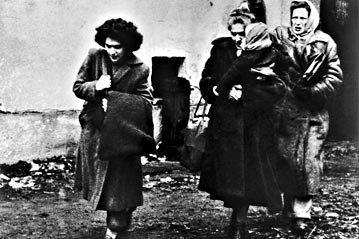1989. Czecholovakia. The ecological concern
(archives) The protection of the environment occupies a good place in the claims of the opposition. On the one hand, because environmental specialists were among the initiators of the movement, on the other hand because the situation is really critical. Czechoslovakia is today one of the most polluted countries in Europe, with nearly 30% of the territory affected, including 8% at a rate higher than that existing in Europe. The entire northwest of the country has an air saturated with pollution, and most of the conifers there have been destroyed.
In Prague on Monday, the radio appealed to the population to reduce car travel, the pollution threshold being exceeded. But the real problem is elsewhere… In Slovakia, a region with an agricultural tradition, the burial of chemical waste and phosphates directly in the basement, most often without any precautions. Few, if any, factories have equipped themselves with anti-pollution devices. This is the result of the government's lack of political will to act. Because as pointed out, bitterly, by an academic from Bratislava "in socialist countries, no one is responsible... the land belongs to everyone. I would like to see the day, where, as in the west, we can question the responsibility of a business leader who would endanger the lives of our children.
Lately, the FRG has offered to provide free filters for the factories… But the Czechoslovak power did not give an answer, except in an indirect way, in the review of the official movement of nature… "Western countries have succeeded in developing by polluting their territory, and now they would like to prevent us from developing economically by imposing minimum pollution standards on us."! It is this same strategy that motivated the continuation of construction work on a giant dam on the Danube, at Gabcikovo, on the edge of the Hungarian border, despite the opposition of the Budapest government and scientists. The The canal, diverting the course of the Danube, is now complete, reaching a height of 18 meters in places, but it is still empty, the opening of the floodgates depending on the change of power taking place in Prague.
Nicolas Gros Verheyde
(article published in the Quotidien de Paris, December 3, 1989)

